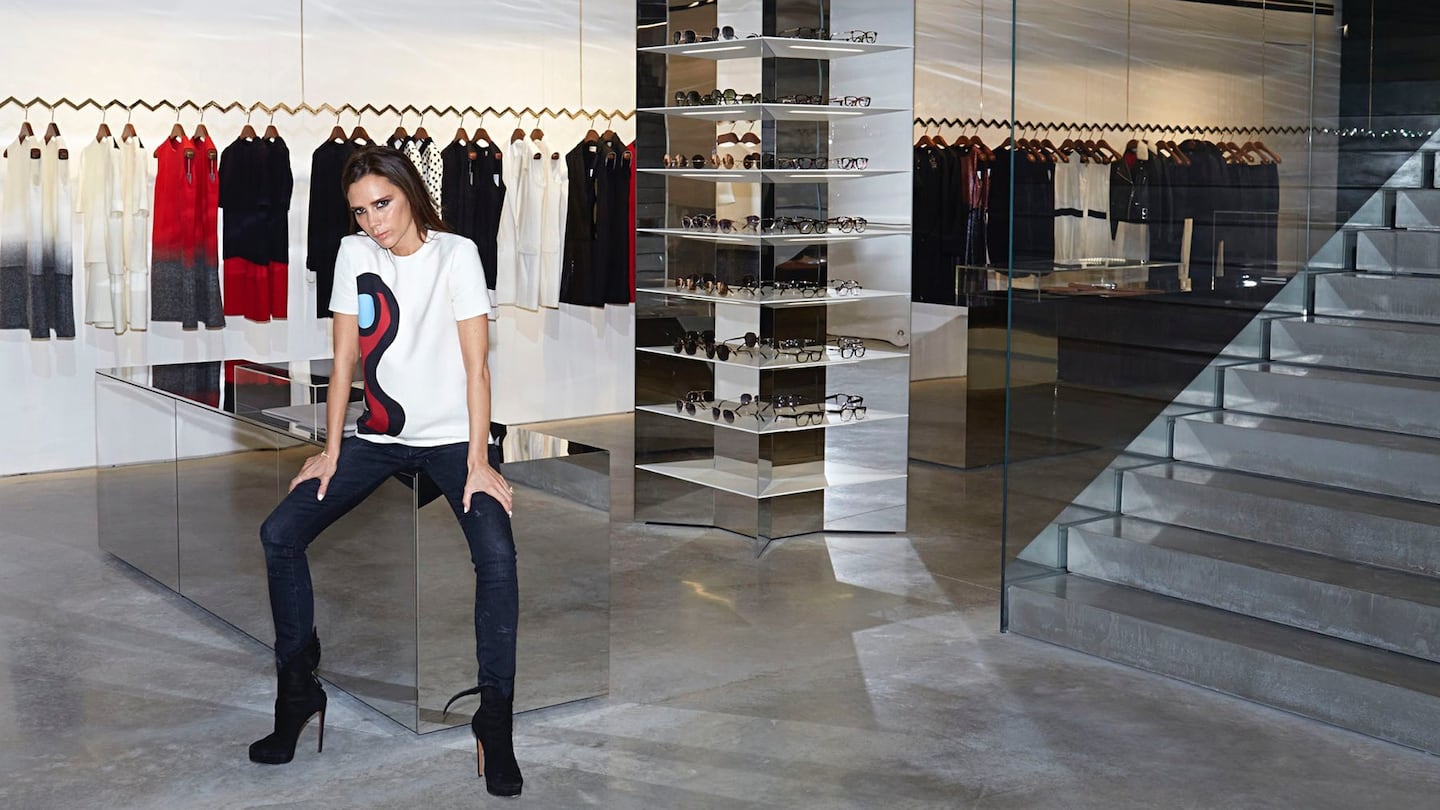
The Business of Fashion
Agenda-setting intelligence, analysis and advice for the global fashion community.

Agenda-setting intelligence, analysis and advice for the global fashion community.

LONDON, United Kingdom — Pop star-turned-fashion entrepreneur Victoria Beckham has raised £30 million (about $40 million) from growth equity firm Neo Investment Partners in exchange for a minority stake in her namesake luxury label. The terms of the transaction were undisclosed, but market sources say the deal valued the business at £100 million ($133.4 million).
“As the business continues to grow, I appreciate the need for external investment which, in turn, would bring external expertise,” Beckham told BoF. “Neo has shown it can take founder-led businesses with a global outlook to new heights. Our focus is on building a sustainable, profitable luxury brand,” she added.
“Victoria Beckham is one of the most exciting entrepreneurs I have had the pleasure to work with,” said David Belhassen, founder and managing partner of Neo Investment Partners. “She is an inspiration to millions of women around the world and she has built a unique, differentiated luxury brand with a strong identity and very high potential. I am delighted to be working with her and her team to reach the brand’s full potential.”
Beckham plans to use the new funding to expand the luxury womenswear brand’s physical retail and e-commerce presence, as well as drive growth in core product categories and expand into new categories. It is also thought that some of the money will go to paying down accumulated debt.
ADVERTISEMENT
Revenues for 2015, the most recent year for which accounts were available, climbed 7.1 percent to £36.5 million (about $48.6 million), according to filings made with Companies House, the United Kingdom's registrar of companies. But 10 years after its founding, the business remains loss-making and has benefited from financial support from income derived from Beckham's husband, the former footballer David Beckham.
According to a March 2016 report in the Telegraph, referring to the company's 2014 financials, Victoria Beckham Limited would have reported a £3.8 million loss had it not been for £5.2 million believed to have been earned by David Beckham. The amount was reported on the company's books as "discontinued operations."
After early forays into fashion with a series licensing deals for eyewear, denim and fragrance, Victoria Beckham launched her own luxury womenswear line in 2008 with a range of prim, easy-wearing dresses. At first, she was shunned by the fashion industry, but Beckham has since expanded into handbags, eyewear and shoes — and earned the respect of her peers. She currently employs 180 people, and operates stores in London and Hong Kong, as well as an e-commerce site.
In 2016, Beckham teamed up with Target on a capsule collection, which included apparel and accessories for women and children. She is currently at work on a new collaboration with Reebok expected to launch in late 2018. "For me, [the partnership] highlights the potential for the brand to grow and expand outside of existing categories," said Beckham. "To challenge the traditional notions of fitness wear within a fashion context is something I have always wanted to do."
The deal with Neo — which has also invested in Parisian menswear brand Ami, Italian luxury leather-goods brand Valextra and British design label Tom Dixon — comes as the Victoria Beckham label prepares to move into new offices in the Hammersmith area of West London.
The business is controlled by Beckham Brand Holdings, a holding company which also owns the licensing of David Beckham’s name and is owned by David Beckham, Victoria Beckham and Simon Fuller, the entertainment impresario best known for creating the “Idol” franchise.
Related Articles:
[ Victoria Beckham, Fashion TransformerOpens in new window ]
[ BoF Exclusive | Victoria Beckham Partners With TargetOpens in new window ]
[ CEO Talk | Sojin Lee, Co-Founder, Fashionair.comOpens in new window ]
In 2020, like many companies, the $50 billion yoga apparel brand created a new department to improve internal diversity and inclusion, and to create a more equitable playing field for minorities. In interviews with BoF, 14 current and former employees said things only got worse.
For fashion’s private market investors, deal-making may provide less-than-ideal returns and raise questions about the long-term value creation opportunities across parts of the fashion industry, reports The State of Fashion 2024.
A blockbuster public listing should clear the way for other brands to try their luck. That, plus LVMH results and what else to watch for in the coming week.
L Catterton, the private-equity firm with close ties to LVMH and Bernard Arnault that’s preparing to take Birkenstock public, has become an investment giant in the consumer-goods space, with stakes in companies selling everything from fashion to pet food to tacos.